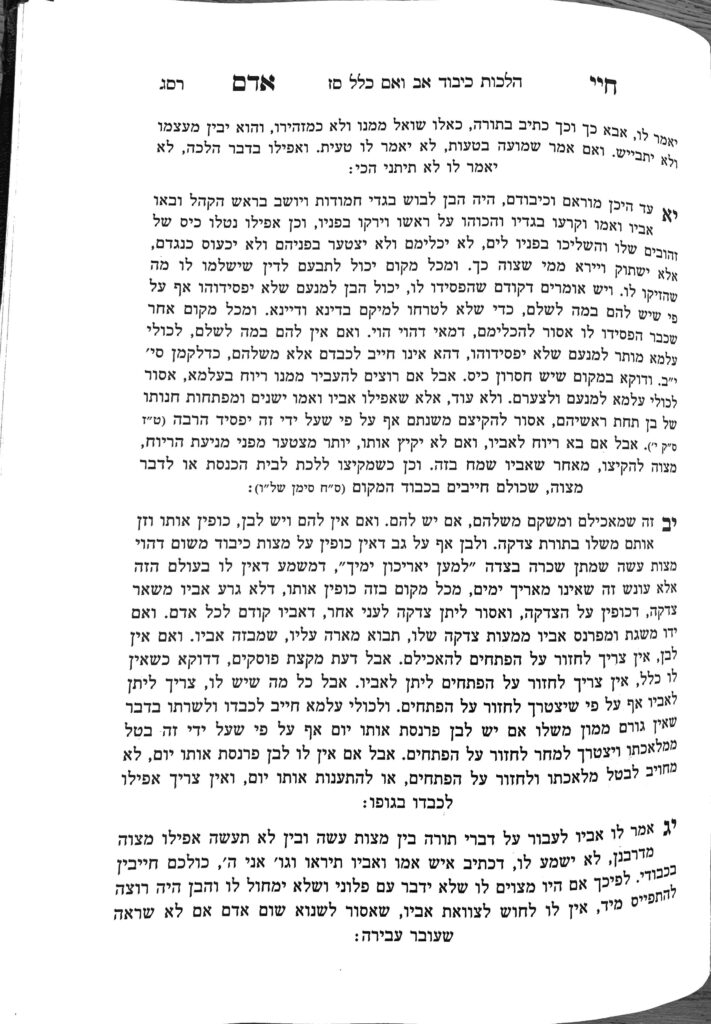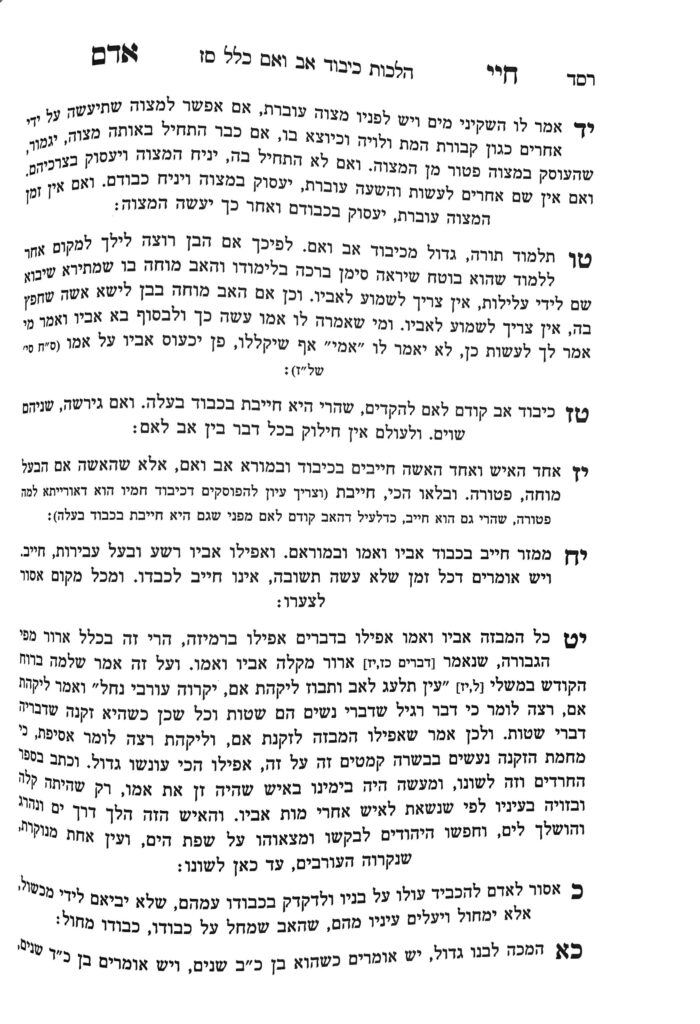We have finished siman 13, and have a point to clarify. We learned that a child should ignore a parent who wishes that their child not forgive or not speak to a certain individual. However, if the parent wishes the child not to speak to the individual because they are concerned that the individual is lacking in yiras shamayim, and they are concerned for their child’s ruchniyus, a child is obligated to listen to their parent.
Even if the child feels that their goal is speaking to the individual is to be mekarev that individual back to where they should be, it is not simple to allow them to trangress their parent’s directive. They should ask their rov for guidance.
If the parent wishes a child not learn with someone, but the child feels they would benefit from learning with that individual, we will see that the Chayei Adam will write that the mitzvah of talmud Torah also overrides the mitzvah of kibud av v’eim. If, however, there is no benefit for the child learning with that individual, the question will depend on the previous point.
In siman 14, the Chayei Adam writes that when there is a conflict between a request from a parent and a mitzvah overes, such as the parent asks for water but there is a mitzvah which needs to be done simultaneously, if the other mitzvah can be fulfilled by others, then it depends if the child has started the other mitzvah. If so, the Chayei Adam writes that one applies the concept of oseik b’mitzvah patur min hamitzvah, that whichever mitzvah one is involved in first will exempt that person from a subsequent mitzvah, even if the new mitzvah is greater than the first one. (We will learn more about this concept in Klal 68.) Therefore, if the child already began the first mitzvah, they should not interrupt the first mitzvah for kibud av v’eim, but if they have not yet started the mitzvah, they should do the kibud av v’eim. If ,however, the other mitzvah requires the child to do it, the rules are different. We will clarify that halacha in the next shiur
Summary
- If a parent wishes for a child to allow for hatred toward another person to continue, the child should not listen.
- However, if the parent is concerned for the child’s ruchniyus, they must listen.
- If the child still wishes to speak to that individual, due to the opportunity to be mekarev them, they should ask a rav.
- If there is a conflict between kibud av v’eim and a mitzvah overes, if the other mitzvah can be fulfilled by others, the child should do whichever mitzvah they began first, due to the concept of oseik b’mitzvah patur min hamitzvah




